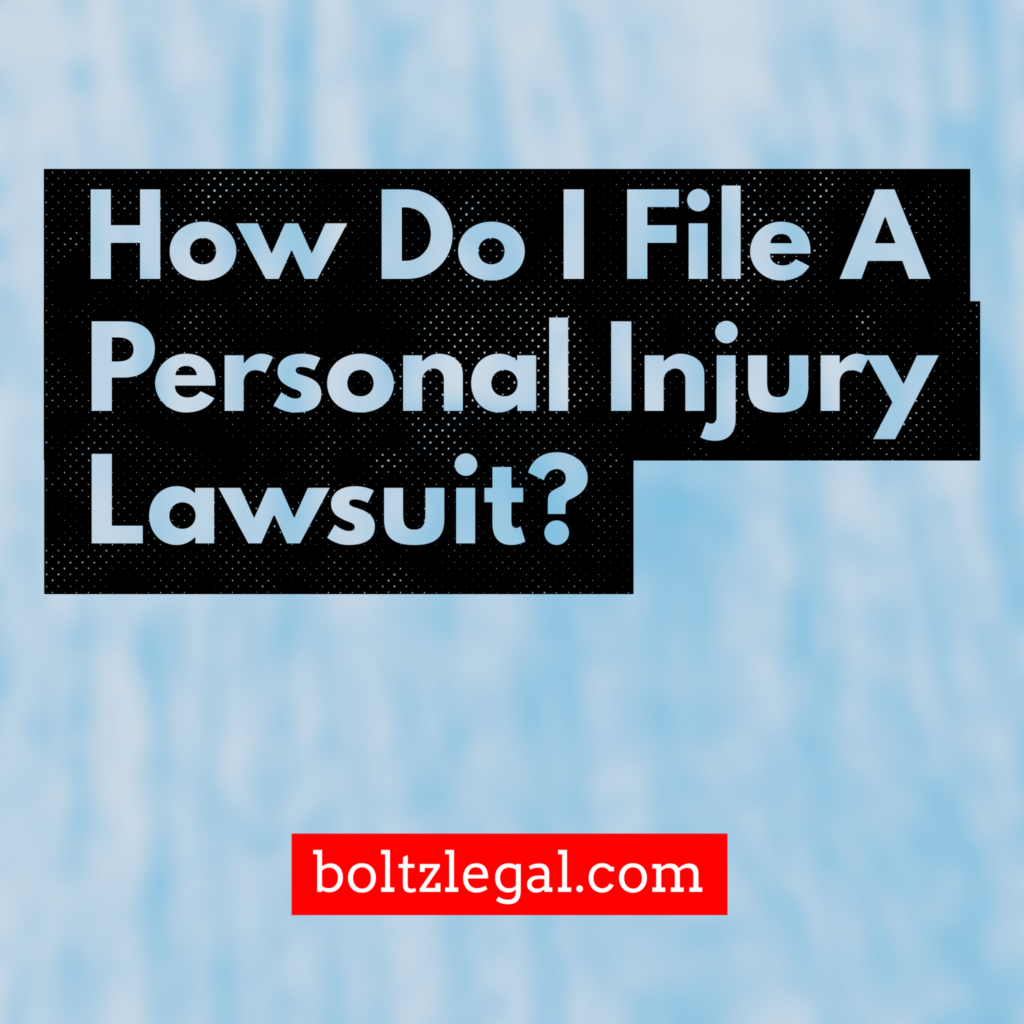To file a personal injury lawsuit, you need to file a “Complaint” with the Clerk of Court.
As the party filing the lawsuit, you are called the “Plaintiff.” The at-fault party that you are suing is called the “Defendant.”
The Complaint should be a written document that includes the following information:
The name of Plaintiff and the Defendant (Plaintiff v. Defendant)
A description of the accident or incident that caused your injury
The location where the accident or injury occurred
The County where the Plaintiff and Defendant reside
The amount of money you are seeking in the lawsuit (if it is more than $15,000, you can state “more than $15,000”).
The legal theory that is the basis for your lawsuit (most personal injury cases are negligence legal theories)Assuming your legal theory is negligence, you must state the legal elements of negligence which are:
Defendant had a duty to exercise reasonable care.
Defendant breached his/her/its duty to exercise reasonable care.
Defendant’s breach of duty caused injury to Plaintiff.
Plaintiff suffered monetary damages as a result of the injury caused by Defendant.
You will also need to prepare a “Summons” to accompany the Complaint. The “Summons” will be signed by the Clerk of Court and will order the Defendant to respond to your lawsuit.
You will need to pay a court filing fee (usually $400) and a summons fee (usually $10.00).
Once the Clerk of Court signs your Summons, you will need to hire a process server personally serve the Defendant with the Complaint and Summons.The process server will charge you a fee to serve the Complaint and Summons (usually approximately $50.)
The Defendant will have 20 days to respond to your lawsuit. If the Defendant does not respond within 20 days, you may ask the Clerk of Court to issue a Default.If the Defendant responds to the lawsuit by filing an “Answer,” the discovery process begins.
Discovery involves exchanging documents, exchanging written questions and answers, and depositions. After discovery, the parties will generally participate in a settlement conference (mediation) to try to settle the case.
If mediation is unsuccessful and the parties cannot otherwise settle, the case will go to trial. At trial, a jury will decide whether the Defendant breached a duty of reasonable care.If so, the jury will decide whether the breach caused injury to you and the amount of damages.
Filing a personal injury lawsuit is a time-consuming process.
Plaintiffs who represent themselves in personal injury lawsuits are not usually successful because they often are up against experienced lawyers.
The personal injury lawsuit can also be expensive and a lawyer will typically pay the costs up front for. The lawyer will get reimbursed for the costs from the settlement proceeds.
For these reasons and more, it is highly recommended that you hire a personal injury attorney to file your lawsuit.

